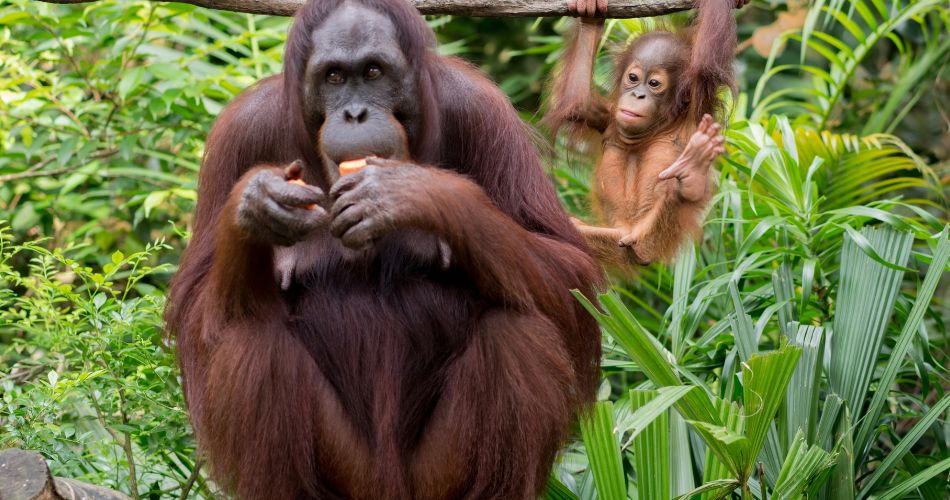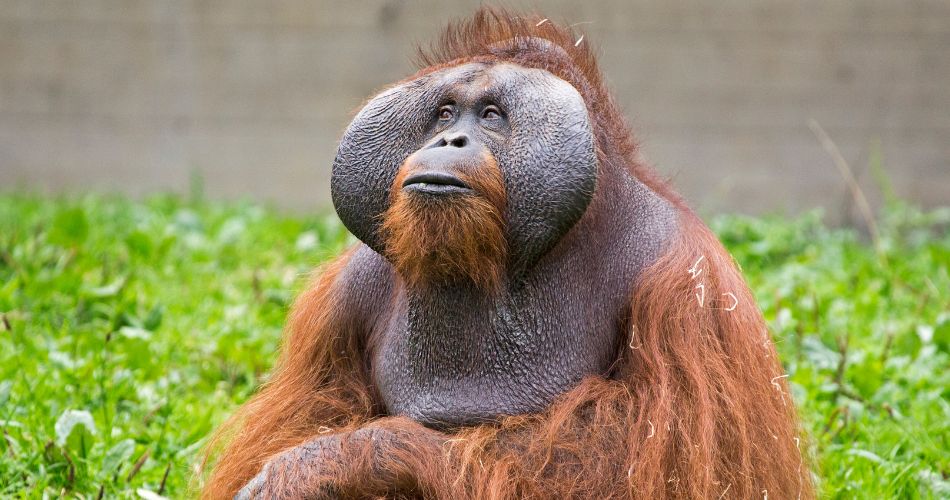International Orangutan Day is observed on August 19 each year, a global call to notice these remarkable great apes and the forests they keep alive through their daily lives and travels. It’s a gentle, steady reminder to learn, speak up, and support the people and projects protecting orangutans and their habitat. 1
History of International Orangutan Day
The observance grew from conservation campaigns that rallied around a fixed date—August 19—to spotlight orangutans as high-profile victims of rapid rainforest loss and unsustainable palm oil expansion. Organizers associated with World Orangutan Events promoted the day “every year,” encouraging public action and practical support for rescue, rehabilitation, and habitat protection. 2
From there it spread through nonprofit networks, travel-conservation blogs, and popular holiday calendars, which helped the message reach classrooms, zoos, and local communities worldwide. These outlets continue to frame August 19 as a moment to learn, fundraise, and take simple steps that add up over time.
Why is International Orangutan Day important?
Orangutans are often called the forest’s gardeners: as they roam for fruit, they scatter seeds, open small gaps in the canopy, and quietly help new trees take root. Paying attention to them is also a way of caring for everything that depends on those same forests—clean water, stable climates, and a maze of other species living alongside them.
The day matters because it links everyday choices with far-away forests. A label on a chocolate bar, a donation to a rescue center, or a single shared fact online can nudge demand toward better practices and keep pressure on decision-makers. Most of us won’t trek through Borneo or Sumatra, but on August 19 we can still stand up for the places orangutans call home.
- It turns a distant issue into something you can act on today.
- It keeps the spotlight on habitat, not just the animal’s cuteness.
- It celebrates the people rescuing, rehabilitating, and releasing orangutans.
- It offers hope by tracking wins—not just losses—each year.
- It connects shopping habits with forest health in a real way.
Interesting facts about orangutans

- There are three species: Bornean, Sumatran, and Tapanuli orangutans—all critically endangered.
- Orangutans share nearly 97% of their DNA with humans, making them among our closest relatives.
- Their name comes from Malay/Indonesian: “orang-hutan,” meaning “person of the forest.”
- They are the world’s largest tree-dwelling mammals, spending most of their time high in the canopy.
- Adult males and females often sport beards and mustaches; Bornean orangutans typically have darker, redder coats and rounder faces.
- Males are much larger than females—big males can top 90 kg (about 198 lb), while females are roughly a third to half that size.
- Their arms are famously long: an adult’s arm span can reach about 2.2 m (7.2 ft), handy for swinging between trees.
- Some adult males develop large cheek pads (flanges) and a throat sac; they use powerful “long calls” to advertise themselves to females and warn rival males.

- Although arboreal, they do travel on the ground at times, moving on all fours.
- They are master nest-builders, weaving fresh sleeping platforms from branches and leaves—often a new one each night.
- Wild orangutans often live 30–40 years, and some individuals have reached 50–60 years.
- Orangutans are outstanding tool users, employing sticks to extract insects and honey and leaves as makeshift gloves or sponges.
- Youngsters stay with their mothers for a long childhood—usually until at least age seven—learning travel routes, foods, and tool use.
- Females have the longest interval between births of any mammal, generally giving birth only every seven to eight years.
- Their hands and feet both have opposable grips; even the big toes help them handle branches and food deftly.
- Diets are diverse: they eat hundreds of fruit species and play a crucial role in seed dispersal—earning the nickname “gardeners of the forest.”
- All three species are listed as Critically Endangered; rough estimates suggest fewer than about 70,000 Bornean, 14,000 Sumatran, and 800 Tapanuli remain in the wild.
- Orangutans have shown striking intelligence in studies—on par with other great apes—solving problems, using complex tools, and even self-medicating with plants used by local people for inflammation.
- The biggest threat is habitat loss from logging, plantations (including palm oil), infrastructure, and fires; projections have warned of vast forest losses across Borneo this century.
- Illegal trade and exploitative tourism harm populations; for every infant captured, multiple adults may be killed defending it.
How to observe International Orangutan Day
Keep it low-key and useful. Start by checking a few items in your kitchen or bathroom and swapping one product for a certified sustainable option next time you shop—RSPO for palm oil, FSC for paper. Read a short explainer about why those labels matter, then tell a friend what you learned in plain language.
If you have a little time, watch a short video from a rescue group, share a single photo with a fact in the caption, or send a small donation if you can. At home, try a rainforest-friendly menu for dinner and talk about why orangutans need big, connected forests. None of this needs to be perfect; it just needs to be sincere and doable.
- Switch one item to a certified sustainable choice.
- Share one fact about orangutans with your circle.
- Plan a mini “forest walk” in a nearby park and talk about habitat.
- Read a kid’s book or watch a short video about orangutans.
- Donate the cost of a coffee to a trusted rescue center.
International Orangutan Day Dates Table
| Year | Date | Day |
|---|---|---|
| 2026 | August 19 | Wednesday |
| 2027 | August 19 | Thursday |
| 2028 | August 19 | Saturday |
| 2029 | August 19 | Sunday |
| 2030 | August 19 | Monday |
- https://www.worldanimalprotection.org/our-campaigns/sentience/animal-awareness-days/world-orangutan-day/[↩]
- http://www.worldorangutanevents.org/international-orangutan-day.php[↩]
Subscribe to our newsletter and never miss a holiday again!

